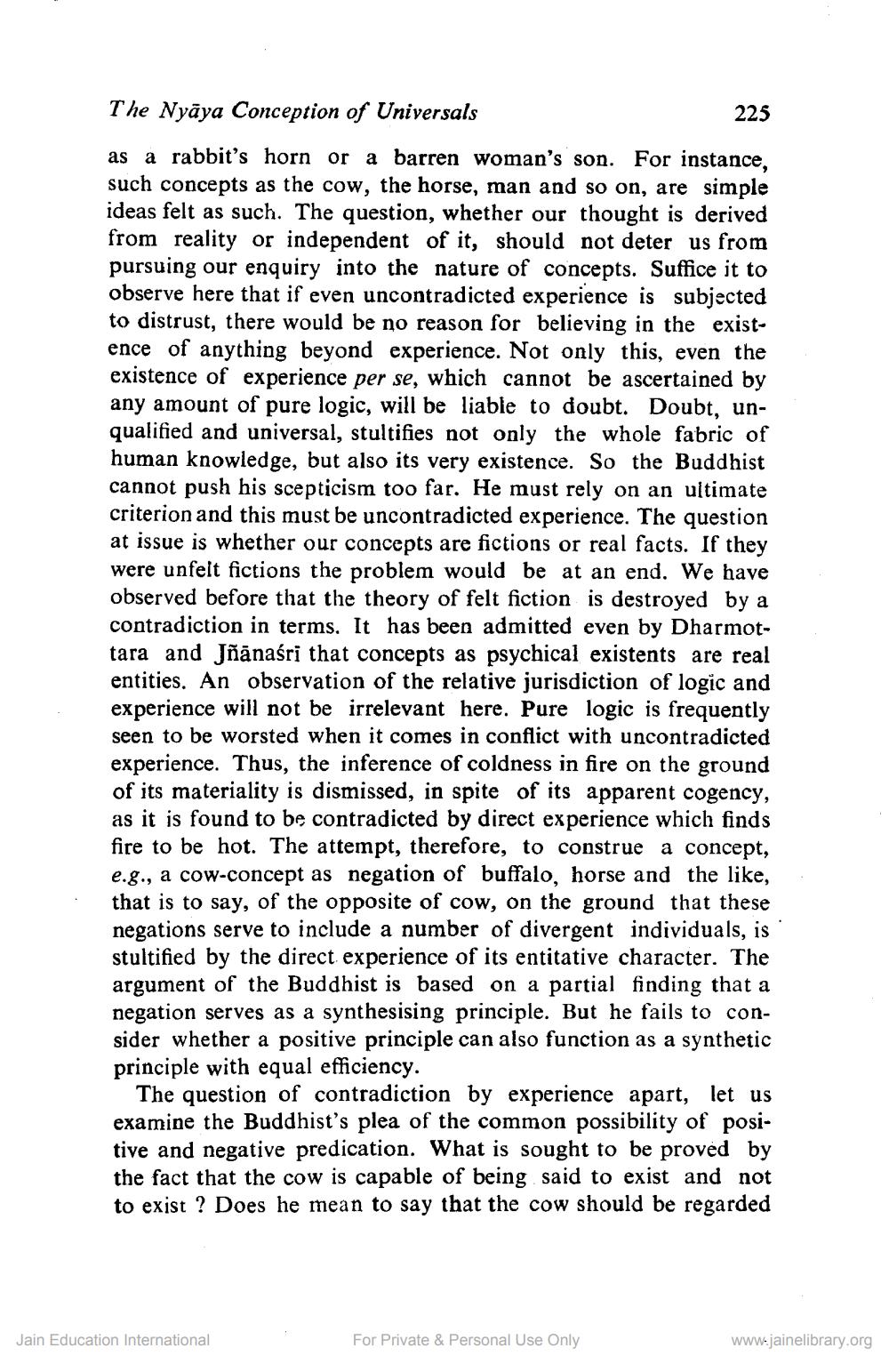________________
The Nyaya Conception of Universals
as a rabbit's horn or a barren woman's son. For instance, such concepts as the cow, the horse, man and so on, are simple ideas felt as such. The question, whether our thought is derived from reality or independent of it, should not deter us from pursuing our enquiry into the nature of concepts. Suffice it to observe here that if even uncontradicted experience is subjected to distrust, there would be no reason for believing in the existence of anything beyond experience. Not only this, even the existence of experience per se, which cannot be ascertained by any amount of pure logic, will be liable to doubt. Doubt, unqualified and universal, stultifies not only the whole fabric of human knowledge, but also its very existence. So the Buddhist cannot push his scepticism too far. He must rely on an ultimate criterion and this must be uncontradicted experience. The question at issue is whether our concepts are fictions or real facts. If they were unfelt fictions the problem would be at an end. We have observed before that the theory of felt fiction is destroyed by a contradiction in terms. It has been admitted even by Dharmottara and Jñānaśri that concepts as psychical existents are real entities. An observation of the relative jurisdiction of logic and experience will not be irrelevant here. Pure logic is frequently seen to be worsted when it comes in conflict with uncontradicted experience. Thus, the inference of coldness in fire on the ground of its materiality is dismissed, in spite of its apparent cogency, as it is found to be contradicted by direct experience which finds fire to be hot. The attempt, therefore, to construe a concept, e.g., a cow-concept as negation of buffalo, horse and the like, that is to say, of the opposite of cow, on the ground that these negations serve to include a number of divergent individuals, is stultified by the direct experience of its entitative character. The argument of the Buddhist is based on a partial finding that a negation serves as a synthesising principle. But he fails to consider whether a positive principle can also function as a synthetic principle with equal efficiency.
The question of contradiction by experience apart, let us examine the Buddhist's plea of the common possibility of positive and negative predication. What is sought to be proved by the fact that the cow is capable of being said to exist and not to exist? Does he mean to say that the cow should be regarded
Jain Education International
For Private & Personal Use Only
225
www.jainelibrary.org




